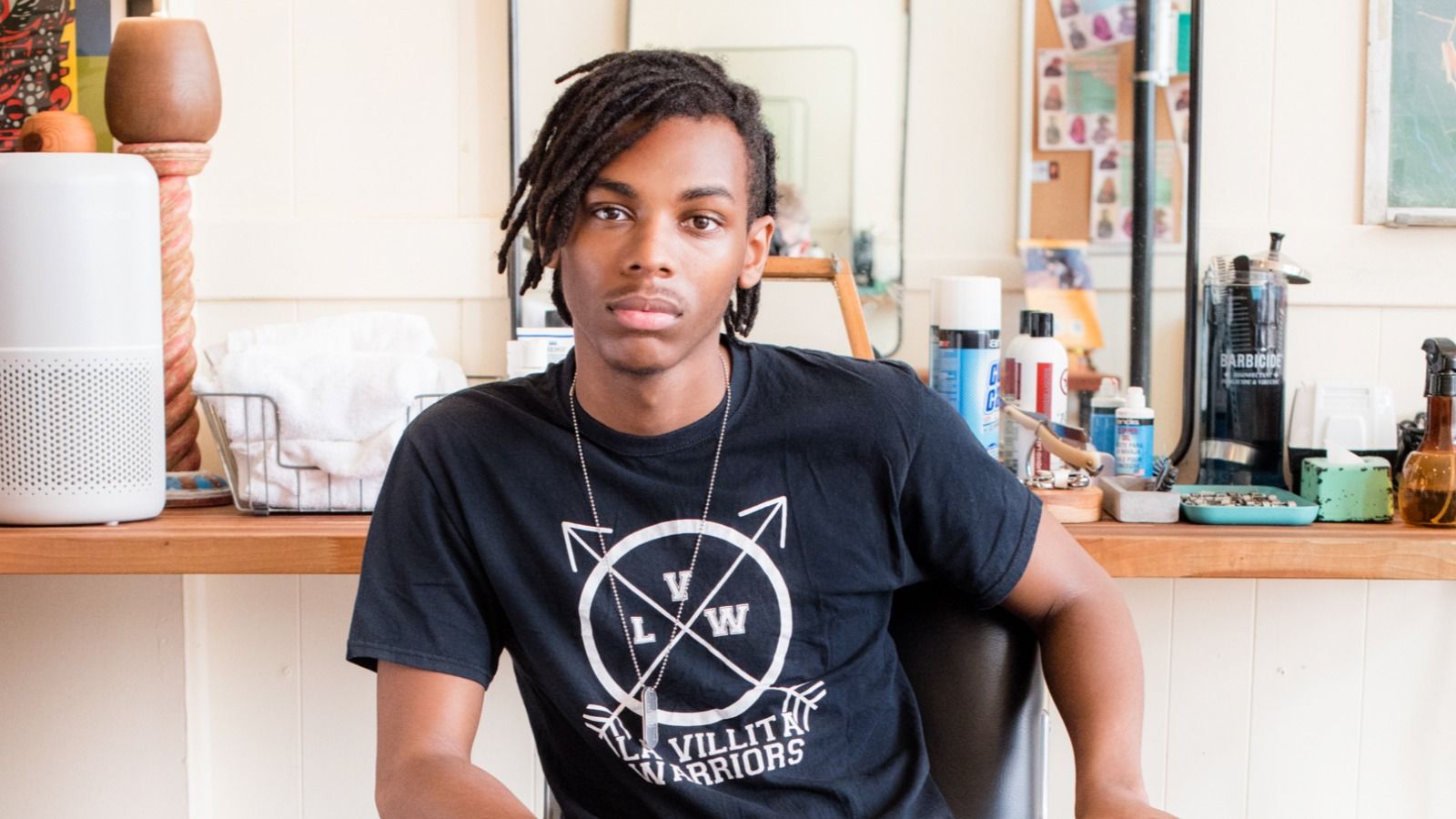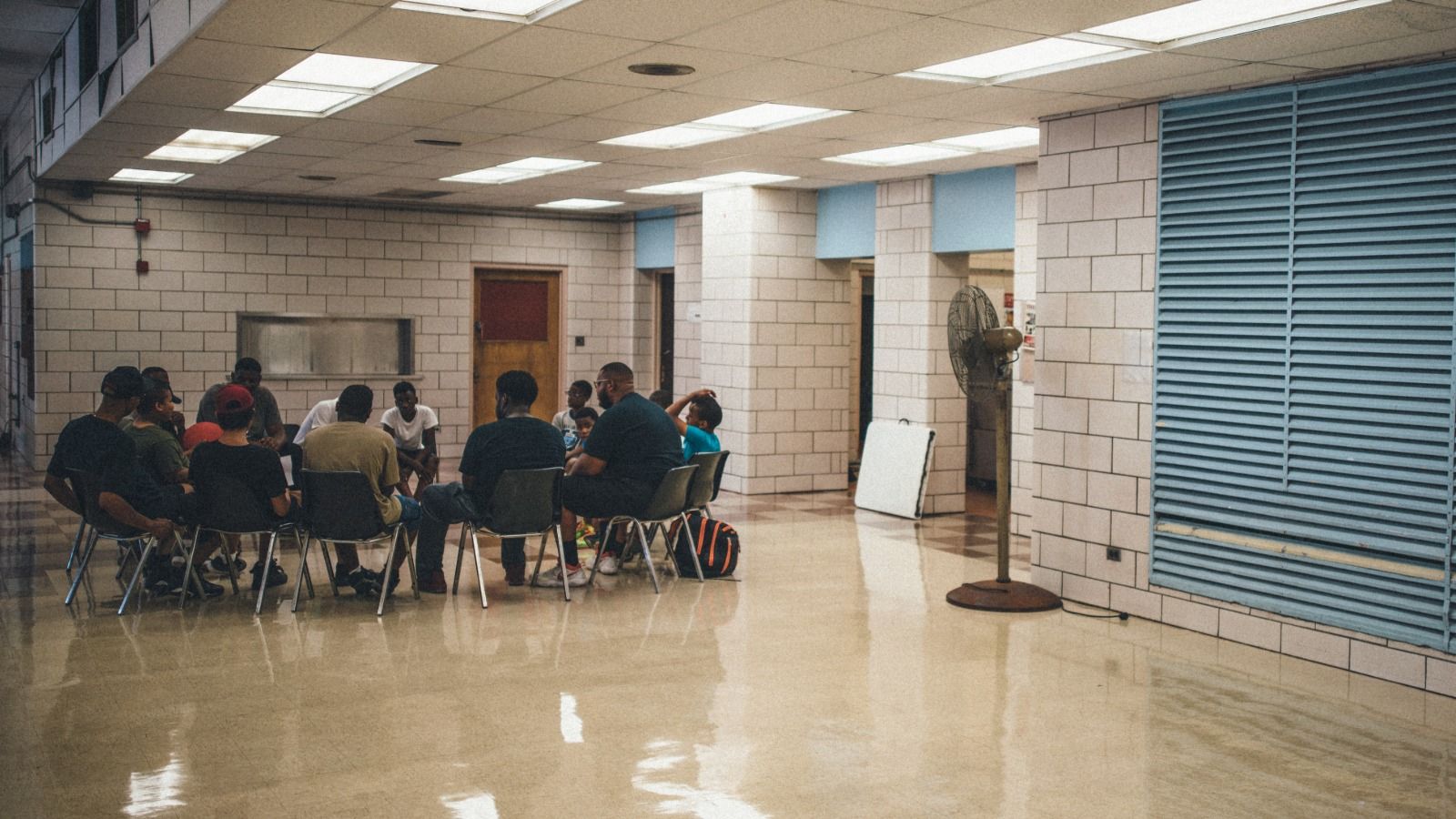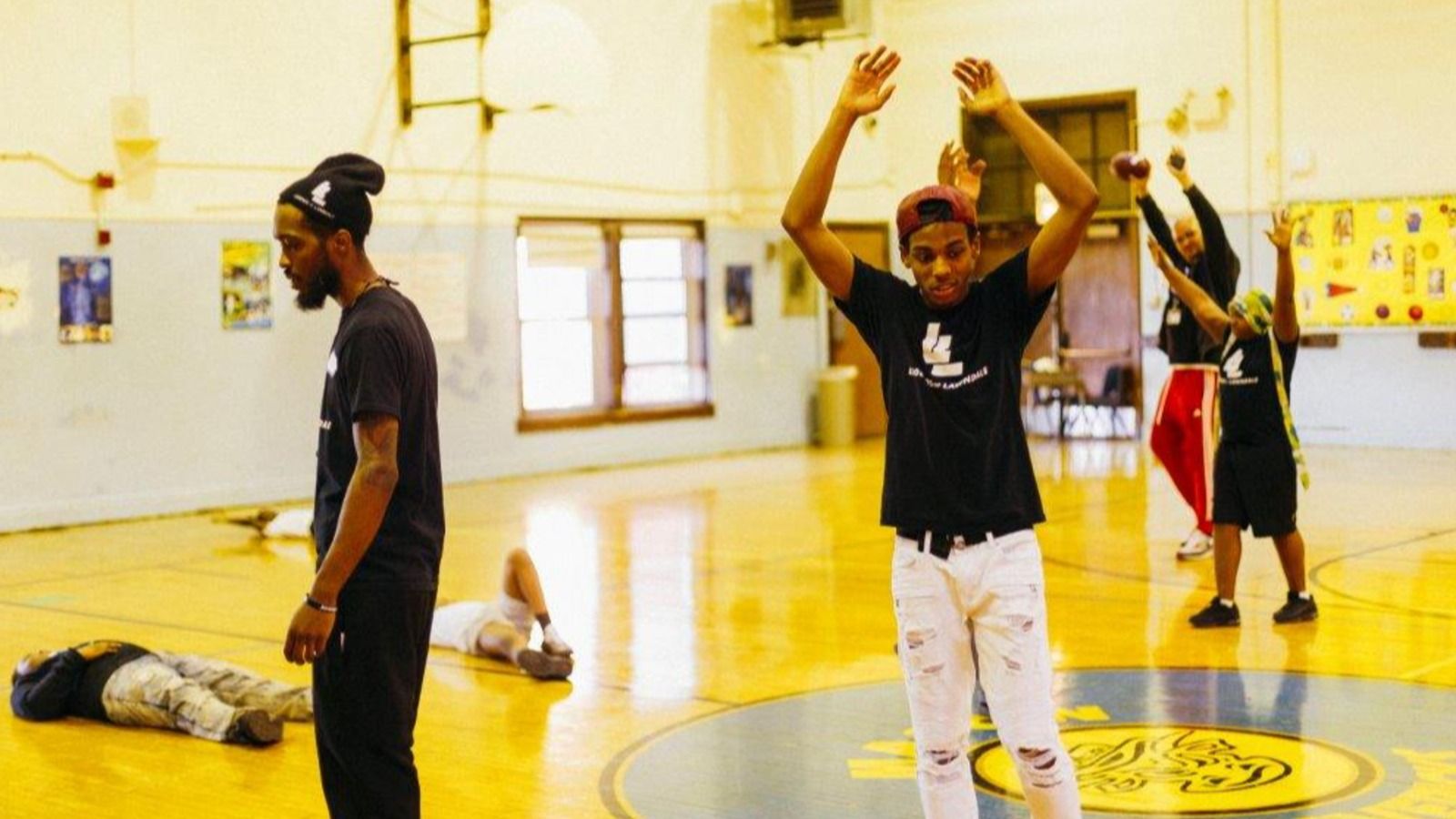




Promoting connection and wellbeing among men and boys in North Lawndale, Chicago
Making Connections for Mental Health and Wellbeing Among Men and Boys is a national US initiative to strengthen communities to support mental wellbeing. In partnership with Movember, Sinai Health System brings together non-profits, schools, and young leaders in Chicago’s West Side. As a mentorship program, it focuses on supporting young men and boys of color who are growing up in a challenging environment where far too many men are dying too young.
Chicago Making Connections is creating safe places to play through afterschool coaching and mentoring programs in the North Lawndale and South Lawndale neighborhoods. These programs offer team sports like basketball as well as support and mentoring to help young men be better able to communicate their needs, understand their emotions, and problem solve.
Donavan Morris got involved in a similar community program in High School as a mentee. He is now a mentor helping other young men within his community. This is his story:
“Being a part of the program was an eye-opening experience for me. I started as a mentee in high school and after roughly a year, the program leads asked if I wanted to become a mentor. It was such an awe-inspiring experience because before then, I’d never done anything like it. The mentorship thing was completely new to me. But even though you’re a mentor, you never really stop being a mentee.
I had a really traumatic experience in high school. The events that transpired around me were really negative and harmful. The Making Connections program offered me an outlet to talk about my experiences and get them out of my system. And when I began to talk about it, it was a release.
" I didn’t open up until I got involved in the mentorship group. Now, I feel like I can have open conversations about pretty much anything. "
As a mentee, I tried to absorb as much as I possibly could. I was on a hunger quest for wisdom and intelligence because deep down, I knew that I always wanted to help people rather than harm them. That said, you can’t really give someone advice unless you really understand it yourself and being a mentor put all of that to the test. One of the most important qualities of a mentor, I learned, was not having a “hero” complex. I’m not here to save them, but rather give them a voice and a path. Sometimes kids don’t want to be saved they just want to be listened to.
Within the African American community, and specifically within the male community, it can feel like we’ve been weaved and welded towards a certain path. You start to think that the only options to make a better life for yourself, and the only doors opened by society, are through sport or entertainment. I want these young men to know that their only choices aren’t becoming a basketball player or a football player. Within the program, we try to expose these young men to a wide range of activities in order to open up the possibilities, including all kinds of sports, drawing, science, etc. The point is to let them dip their toes into the water, figure out what they are interested in, and then to encourage them and take their interests seriously, whatever it might be. I’m not saying that sports are useless, I just want them to know that it’s not their only option.
Another thing I really try to work on with these young men is establishing a sense of culture and belonging. As African Americans, we’ve had our culture destroyed and so much of our history tainted. To the point where now we don’t even know who we are anymore. There’s this perception that the only way to better ourselves or find happiness is through money and, like I mentioned earlier, through entertainment or sports. You can have a talent for the creative arts and follow that path. If you want to be a scientist or an engineer, there are possibilities. As an African American male, having these conversations and helping these young men realize the possibilities through my own experiences is so powerful. What’s even better is it feels like it’s really starting to infiltrate.
Just giving these kids something to feel connected to, for instance looking back into their roots, can also be so powerful. For me personally, my goal is to have this generation of young Black men become something more than society wants them to be. And specifically, within the male community, breaking down the stigmas that are placed on men. For instance, thinking we have to be tough all the time and we can’t show emotion. We can’t live like that. Crying does not make you weak. In fact, showing emotion actually makes you strong. I want these young men to realize, internalize it and be true to themselves. These mentor groups are such a positive way to start these types of conversations. I didn’t open up until I got involved in the mentorship group. Now, I feel like I can have open conversations about pretty much anything. That’s ultimately what we’re trying to do. Give young men a safe space where they don’t feel forced to have tough conversations but offering them that door to walk through if/when they feel ready.
The message I want men in my community to know is that if they ever want to talk, I’m here to listen. A lot of people who are going through traumatic experiences start to feel like they are alone in it or like nobody else will understand what they are going through. When you get into that mindset, it becomes really difficult to reach out for help. When you’re going through something traumatic, don’t hold it in. By telling someone else, you can lift that burden. Sometimes by vocalizing it, it helps you realize and understand what’s happening to you. As a mentor for Legends of Lawndale, I just want to be the mediator. I’m not here to change you or fix you, I’m simply here to guide you on your path and give you a voice.”